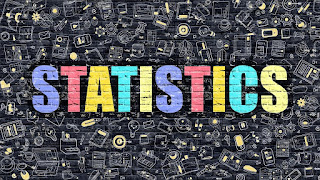Individual Behaviour
INDIVIDUAL BEHAVIOUR
Introduction
·
Individual
behaviour refers to how a person responds to various situations and stimuli in
an organization or environment.
·
It is influenced
by internal traits and external factors such as upbringing, social norms, and
work conditions.
·
Understanding
individual behaviour helps in:
·
Predicting responses
·
Managing workforce diversity
·
Enhancing productivity
·
Effective leadership and motivation
Biographical Characteristics
·
These are
personal characteristics that are objective and easily obtained from an
individual’s records.
·
Though simple,
they influence workplace behaviour and performance.
Key characteristics
|
Biographical Characteristic |
Influence
on Behaviour |
|
Age |
Older employees may have more experience and
maturity; younger may be more adaptive. |
|
Gender |
Stereotypes exist, but modern workplaces promote
equal opportunities and diversity. |
|
Marital Status |
Married employees may have higher stability but may
also face work-life balance issues. |
|
Tenure |
Longer tenure often correlates with organizational
commitment and lower turnover. |
|
Education |
Higher education can enhance cognitive abilities,
decision-making, and openness to change. |
Learning
·
Learning is a
relatively permanent change in behaviour due to experience or practice.
Theories of Learning
|
Theory |
Explanation |
Application |
|
Classical Conditioning (Pavlov) |
Learning through association (stimulus–response). |
Training, behaviour shaping. |
|
Operant Conditioning (Skinner) |
Behaviour is shaped by rewards or punishments. |
Performance incentives, discipline. |
|
Cognitive Learning |
Focuses on internal thought processes. |
Training through problem-solving, reasoning. |
|
Social Learning (Bandura) |
Learning through observing others. |
Role modeling, mentoring, on-the-job training. |
Values
Values are stable, long-lasting beliefs about what is important in a variety of
life situations.
Characteristics of Values
- Influence
attitudes and behaviour
- Develop
from culture, upbringing, religion, education
- Tend
to be stable over time
Types of Values
|
Type |
Examples |
|
Terminal Values |
End goals of life (e.g., happiness, success,
self-respect) |
|
Instrumental Values |
Means to achieve terminal values (e.g., honesty,
hard work, discipline) |
Importance in Organization
- Shared
values foster teamwork
- Value
conflicts may lead to dissatisfaction
- Helps
in aligning personal and organizational goals
Attitudes
Attitudes are evaluative statements—favorable or unfavorable—about objects,
people, or events.
Components of Attitudes (ABC Model):
|
Component |
Meaning |
Example |
|
Affective |
Emotional feeling |
“I feel happy working here.” |
|
Behavioural |
Intention to act |
“I will recommend this job to others.” |
|
Cognitive |
Beliefs/thoughts |
“I think my manager is fair.” |
Types of Work-Related Attitudes
- Job
Satisfaction: Positive feeling about the job.
- Organizational
Commitment: Emotional attachment to the
organization.
- Job
Involvement: Degree of engagement in one’s job.
- Employee
Engagement: Passion and commitment toward work.
Summary Table
|
Aspect |
Core Focus |
Impact on Individual Behaviour |
|
Biographical Characteristics |
Personal attributes |
Predict performance & absenteeism |
|
Learning |
Acquiring knowledge or behaviour |
Skill development, productivity |
|
Values |
Beliefs about what is right |
Influence decision-making, culture fit |
|
Attitudes |
Positive/negative evaluations |
Affect motivation, satisfaction, and performance |
Video Description
· Don’t
forget to do these things if you get benefitted from this article
· Visit
our Let’s contribute page https://keedainformation.blogspot.com/p/lets-contribute.html
· Follow
our page
· Like
& comment on our post
·




Comments